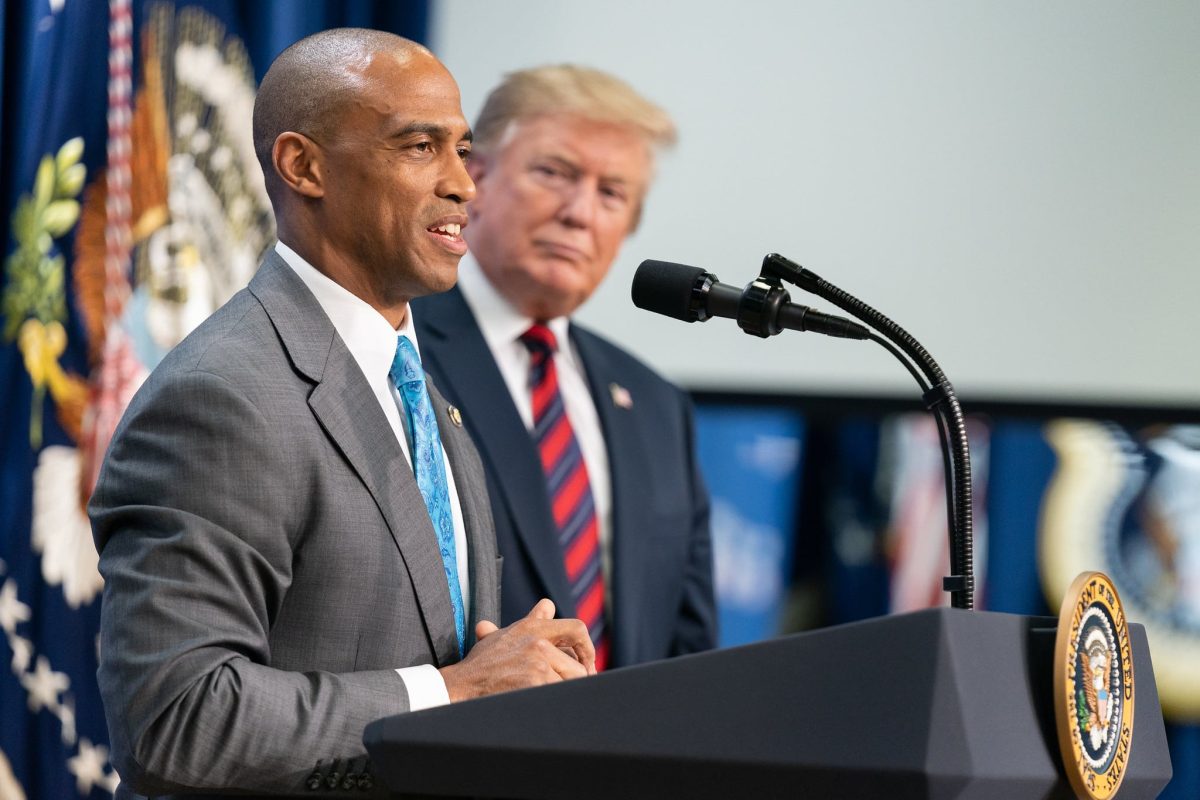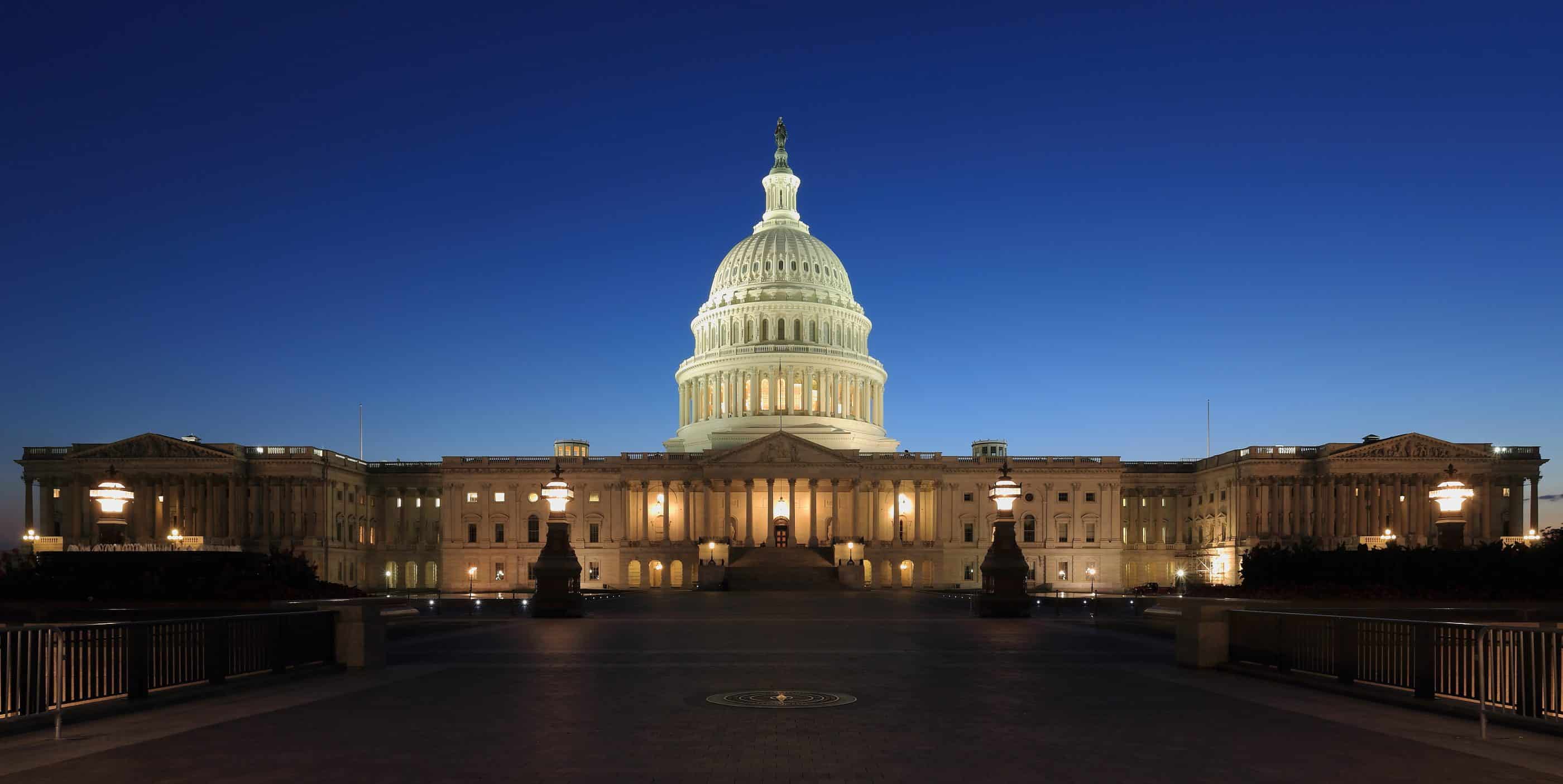In a slew of Friday evening nominations, President-elect Donald Trump named former Texas state Rep. Scott Turner as his pick to lead the U.S. Department of Housing and Urban Development.
Turner, who served in the House from 2013 to 2017, was the executive director of the White House Opportunity and Revitalization Council during Trump’s first term. The council was responsible for identifying best practices for utilizing federal Opportunity Zones, a tax incentive that was designed to encourage private investment in communities that are often neglected.
Turner, a former professional football player, is also the chair of the Center for Education Opportunity at the America First Policy Institute, a right-wing think tank closely connected to Trump’s campaign for a second presidential term.
If confirmed by the Senate, Turner will take the helm of a federal agency that has a $70 billion-plus annual budget and manages programs that serve millions of tenants who live in public housing and use vouchers, help house people who are experiencing homelessness, and aid homeowners who are facing foreclosure, among other crucial activities.

Turner is Trump’s first Black appointee, continuing a pattern former HUD Secretary Marcia Fudge complained about when she was seeking the agriculture secretary position in 2020—that of Black leaders being primarily relegated to HUD.
Because of his background with Opportunity Zones, the Black Community Developers Group—a coalition of 50 Black community developers, home builders, and CDFIs—worries Turner may look to the private sector to address the growing housing crisis.
“While these [Opportunity Zones] were intended to drive economic growth, they have been criticized for disproportionately benefiting wealthy investors over the communities they were designed to support,” the organization wrote in a statement commenting on the nomination. “This focus raises concerns about HUD’s future allocation of resources, as prioritizing such market-driven initiatives could divert funding from affordable housing programs critical to organizations.”
Dan Immergluck, professor of urban studies at Georgia State University, shares this concern. He posted about the appointment on the social media site BlueSky, calling the Opportunity Zone program, “a basically scam tax break widely regarded as worst & least-accountable economic development program in US history” and observing that “investors who have fed at the Opportunity Zone trough are all giddy . . . since they hope it means the program will be extended and maybe even become *more* lucrative.”
Those investors who have worked with Opportunity Zones are in fact sharing their excitement about Trump’s pick. That includes Savoy Equity Partners’ Barrett Linburg, who on LinkedIn said Turner’s appointment will mark, “a significant step forward for the future of Opportunity Zones . . . Not only does this show Trump’s commitment to the program, but it also places one of the most experienced OZ advocates in a position of real influence.” In the last four years, Savoy Equity Partners has worked on 25 multifamily housing projects in Texas that utilized Opportunity Zone incentives.
What to Expect During a Second Trump Presidency
Last week, Shelterforce spoke with Sarah Saadian of the National Low Income Housing Coalition (NLIHC), and David Dworkin of the National Housing Conference about what can be expected in Trump’s second term, and how Project 2025 could play into it.
Saadian says NLIHC is expecting to see a lot of the same harmful provisions from Trump’s first term in office, and worries Trump could follow through on his campaign promise to create sanctioned encampments for unhoused people. His presidential platform Agenda47 states that his presidency would “ban urban camping, offering violators the option to either receive treatment and rehabilitation or face arrest.” He also promised to premiere “tent cities” where “the homeless can be relocated and their problems identified” by doctors including psychiatrists, social workers, and drug rehab specialists.
Other first-term policies Saadian is particularly worried about seeing return—and potentially intensify—include Trump’s abrupt repeal of the Affirmatively Furthering Fair Housing Rule, failure to enforce HUD fair housing standards, threat to increase rents on HUD housing residents, and attacks on Housing First policies.
“I think what makes 2024 different than 2016 is that this time around, whoever is secretary is going to have fewer checks and balances on their power,” Saadian said. “There’s going to be fewer establishment Republicans in either Congress or in the administration who would push back on harmful policies.”
When it comes to Project 2025, Dworkin thinks the fear of playbook’s extreme provisions is overblown, calling it a menu. “You order off the menu the things you can digest,” he says. “So there are a lot of things in Project 2025 that are part of a traditional conservative agenda that are highly unlikely to be done.”
Project 2025 takes direct aim at HUD’s tools for creating and preserving affordable housing—specifically public housing, housing assistance vouchers, first-time homebuyer assistance, and any financial programs tailored toward homeowners who aren’t white. It instead recommends policies that would transform HUD into a profit-generating, privatized enterprise. It calls for abolishing the Section 8 program’s proration system, which allows undocumented heads of household to receive benefits on behalf of eligible minor children. It would also enact time limits and work requirements on Section 8 recipients.
We’ll continue reporting on this developing story.





Please assist low income citizens to obtain a mortgage for a first time home
Well this author isn’t biased and pushing project 2025 propaganda at all… oh wait…
Thanks for the heads-up – I never understood OZ to amount to much except making developers richer – how many units produced? and what income levels, and where…
The Biggest Barrier to increasing the supply of Affordable Middle Class housing
is that it LOWERS housing prices!
For many home owners, artificial constraints on new housing construction (ex : zoning) props
up and increases the value of their home – which is their biggest investment and
for many is both highly leveraged and most – if not all – of their wealth.
Until this is addressed, PRETEXTS for NIMBYism will abound. It’s hard to convince
people to impoverish themselves.
Moving zoning out of localities toward State governments – or even Federal government
in areas with median home prices : income ratios >4 (housing affordability emergency regions)
would help. Allowing home owners to build additional housing units for rental on their properties
would allow homeowners to personally profit from new housing unit construction and not
get wiped out.